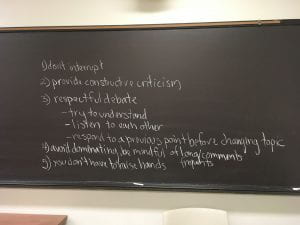This year demands that we recognize and acknowledge the ways that this new adventure is more demanding than the average term in ways that go beyond the impacts of the COVID-19 pandemic. While it is important to be compassionate toward our students, it is equally important to extend that same compassion toward ourselves if not for the sake of our own wellbeing, for the sake of being the best instructor for our students despite the challenges of this time.
At this moment, I’d like to take a page out of my own teaching and share a key writing principle that I emphasize to my students: writing is not natural. Writing is not just an act but a process that takes time and practice so is learning how to be effective online instructors. This moment, more than any before, demands that we recognize our humanity and accept that things won’t be perfect and that it’s okay for things not to be perfectly pristine and polished.
Much like last Spring quarter, this Autumn quarter has proved difficult for all across the University. New health policies, new course schedule blocks, and shifting academic calendars (among other things) make this academic year a strong exercise in adaptability for students, faculty, and staff alike. The goal of this column is to create a space to discuss and demystify some of the pedagogical challenges that we encounter throughout this time.
If there’s a topic that you’d like to see covered, please feel free to submit suggestions to me, Brandy C. Williams, at brandycwilliams@uchicago.edu. Other resources available from Remote Humanities include other informative posts, including interviews with faculty, and the Online Pedagogy Assistant (OPA) Program (and meet the OPAs).


